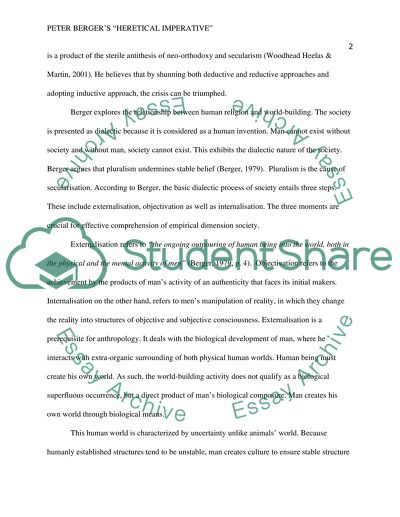Cite this document
(“Peter Berger's heretical imperative Essay Example | Topics and Well Written Essays - 1000 words”, n.d.)
Peter Berger's heretical imperative Essay Example | Topics and Well Written Essays - 1000 words. Retrieved from https://studentshare.org/religion-and-theology/1473422-peter-berger-s-heretical-imperative
Peter Berger's heretical imperative Essay Example | Topics and Well Written Essays - 1000 words. Retrieved from https://studentshare.org/religion-and-theology/1473422-peter-berger-s-heretical-imperative
(Peter Berger'S Heretical Imperative Essay Example | Topics and Well Written Essays - 1000 Words)
Peter Berger'S Heretical Imperative Essay Example | Topics and Well Written Essays - 1000 Words. https://studentshare.org/religion-and-theology/1473422-peter-berger-s-heretical-imperative.
Peter Berger'S Heretical Imperative Essay Example | Topics and Well Written Essays - 1000 Words. https://studentshare.org/religion-and-theology/1473422-peter-berger-s-heretical-imperative.
“Peter Berger'S Heretical Imperative Essay Example | Topics and Well Written Essays - 1000 Words”, n.d. https://studentshare.org/religion-and-theology/1473422-peter-berger-s-heretical-imperative.


